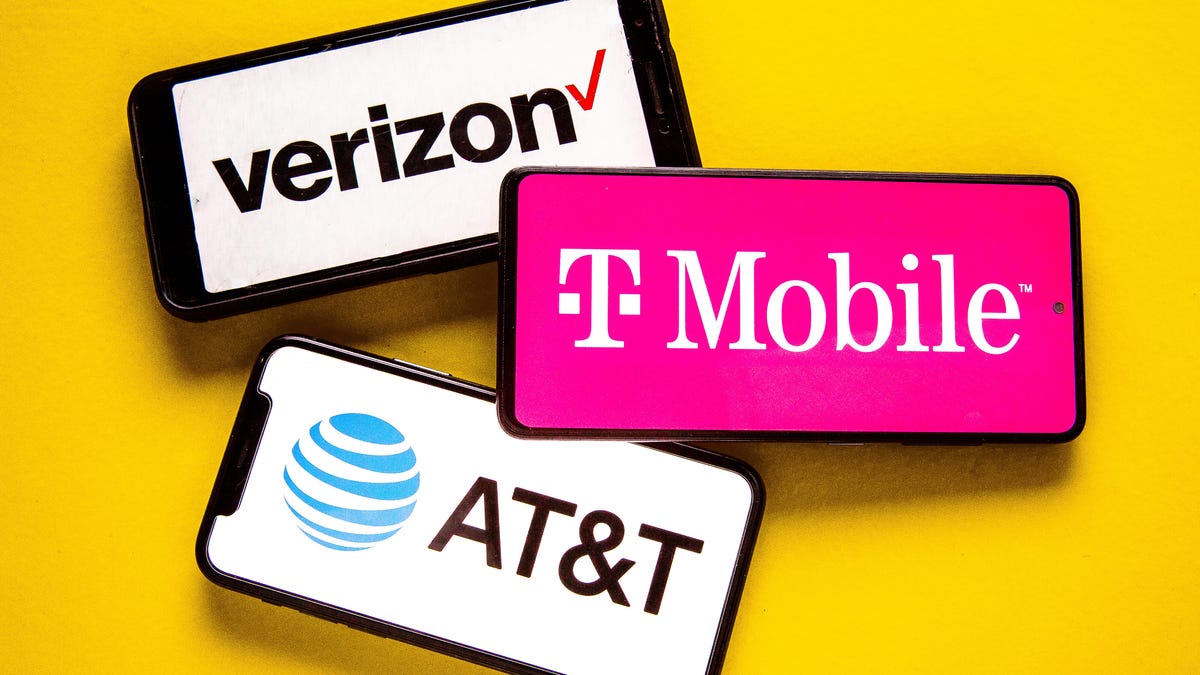When Does My Phone Unlock? And How Can I Get My Carrier to Do It?
We're here to answer your unlocking questions.

With the iPhone 14 now available and relying on eSIM in the US, switching between carriers could soon become faster and easier than ever. You won't have to head into a store or wait for a physical SIM card to ship to you. With eSIM, adding new wireless service could be done in a matter of minutes and be as simple as downloading an app. Some providers, like T-Mobile, have already even turned to the technology as a way to get you to test drive its network alongside your current one.
That is, assuming you have an unlocked device. Whether you are debating switching providers or planning a trip abroad, here's what you need to know about unlocking a phone on AT&T, Verizon or T-Mobile.
Read more: CNET's iPhone 14 Pro and Pro Max reviews
Why are phones "locked"?
Phones, like the iPhone 14 Pro line, can be locked to a carrier when purchased on an installment plan.
Before we go into unlocking, first let's explain what it means for a phone to be "locked" or "unlocked."
Phones are expensive, and in the US the major wireless providers often are willing to subsidize that cost in exchange for you committing to staying with them for a period of time. For years this was through two-year contracts, but today it's largely in installment plans. You trade in your current phone and AT&T/T-Mobile/Verizon will give you a hefty discount on a new one so long as you are willing to be on a certain plan and stay with them for 24 to 36 months.
To incentivize staying, the carriers often dish out the discount as monthly bill credits. If your new iPhone 14 costs $27.78 a month at AT&T, the carrier will give you a monthly credit on your bill for that amount until the phone is paid out (which at AT&T, is now 36 months). Want to upgrade early or leave to another provider? You'll have to be willing to pay out the balance of what's owed.
Because the carriers don't want people to buy a phone and then ditch it immediately, they also added a software layer of security that limits the phone to their network. This is known as being locked to a network, with unlocked devices available to work on any network that supports it including internationally.
Those looking for freedom from the start should note that Apple, Samsung, OnePlus, Google and others will sell you a phone unlocked, and may even offer a discount if you have another device to trade in. It is worth mentioning that these discounts are often much lower than what a carrier might offer.
Read more: iPhone 14 preorder deals
How long do the locked periods last? How can I get free?
Unlocked phones have several advantages over locked phones.
The length of time the phone is tied to each carrier varies, as do some other requirements attached to it.
On AT&T, you need to pay through the installment plan or pay your device off to be able to unlock it. Your device can not be reported as lost or stolen and you also can't have a past-due balance on your wireless account. If you meet those requirements, you can request to unlock it at AT&T's website here.
T-Mobile has similar terms to AT&T, such as making sure your phone balance is paid off, your account is in good standing and that the phone hasn't been reported lost or stolen. You will also need to have been on T-Mobile's network for 40 days. Once you meet those requirements, T-Mobile automatically unlocks your devices "within two business days." More details can be found here.
Surprisingly, Verizon has the best unlock policy out of the three major providers. Thanks to some rules that were tied to wireless spectrum it acquired over a decade ago, the nation's largest carrier will automatically remove locks on its devices after 60 days. You do not need to have paid off your installment plan, though if you do decide to switch carriers you will still be on the hook for paying off the balance of what is owed.
We should note that all three carriers have exceptions to their respective policies for deployed military personnel.
Will my phone work with other providers once unlocked?
Most recent major phones -- including the Apple iPhone 14, Samsung Galaxy S22 and Google Pixel 6 lines -- feature support for all major US carriers' 4G LTE and 5G networks. All iPhones that Apple sells in the US, for example, will work with all three major operators' networks regardless of which store or carrier you purchase it from.
That said, there may be some discrepancies based on the device you have. A T-Mobile, AT&T or even unlocked Google Pixel 6A will work with Verizon's 4G LTE and 5G networks, though it will lack the ability to connect to its fastest millimeter-wave 5G network should you switch to Verizon and be in an area where that network is available (certain streets in major cities and areas of certain airports, arenas and stadiums).
This is because the Verizon version of this device features the necessary millimeter-wave hardware, while the other models do not (the Verizon variant is also $50 pricier).
These cases are increasingly less prevalent, particularly on the latest iPhones and Galaxy S devices, but it is worth keeping in mind if you're planning to move around. Each carrier has set up pages on their respective websites for you to check that your phone will work with its service: AT&T, T-Mobile, Verizon.

